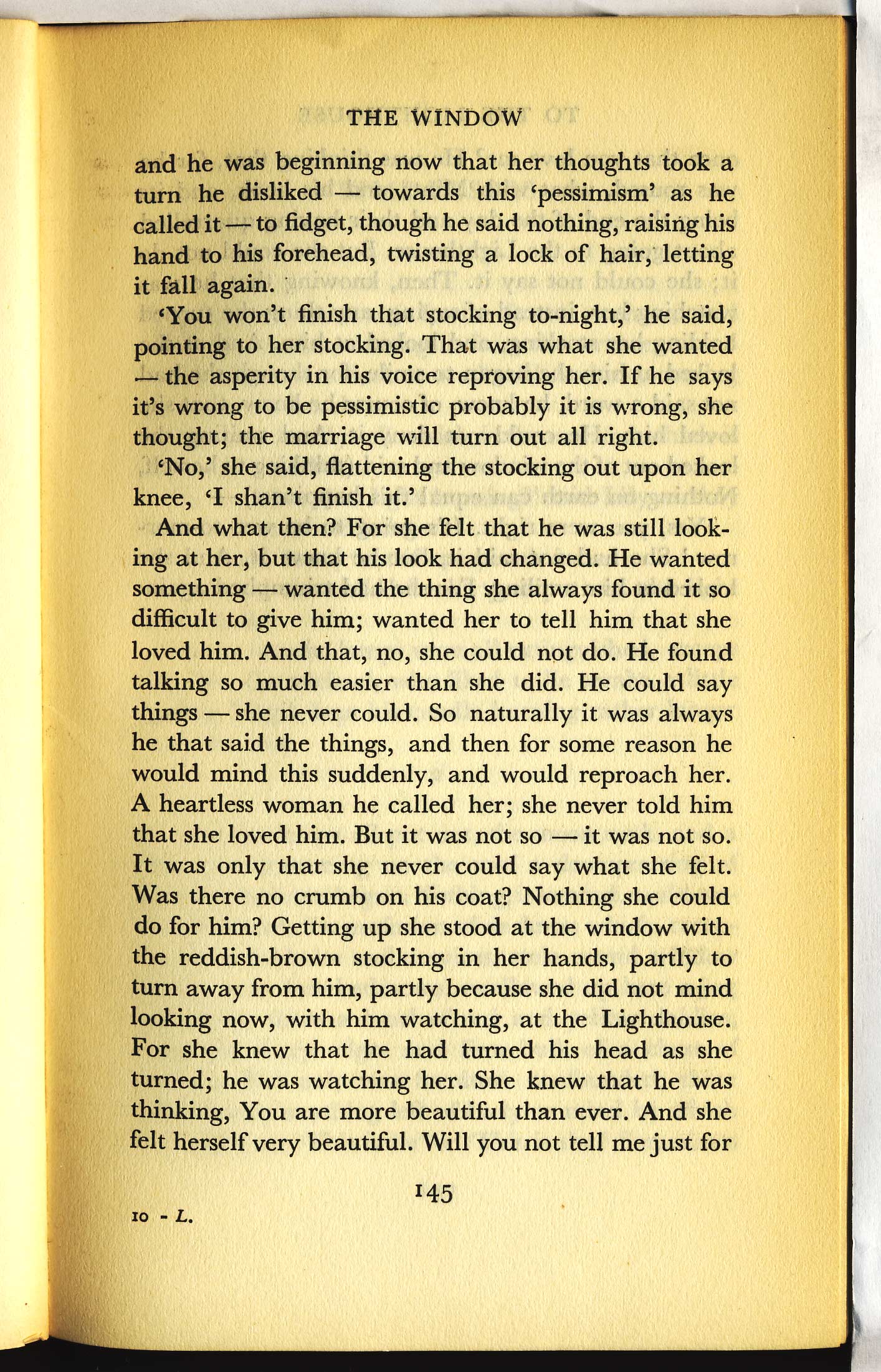
THE WINDOWand he was beginning now that her thoughts took aturn he disliked ŌĆö towards this ŌĆśpessimismŌĆÖ as hecalled it ŌĆö to fidget, though he said nothing, raising hishand to his forehead, twisting a lock of hair, lettingit fall again.ŌĆśYou wonŌĆÖt finish that stocking to-night,ŌĆÖ he said,pointing to her stocking. That was what she wantedŌĆö the asperity in his voice reproving her. If he saysitŌĆÖs wrong to be pessimistic probably it is wrong, shethought; the marriage will turn out all right.ŌĆśNo,ŌĆÖ she said, flattening the stocking out upon herknee, ŌĆśI shanŌĆÖt finish it.ŌĆÖAnd what then? For she felt that he was still look-ing at her, but that his look had changed. He wantedsomething ŌĆö wanted the thing she always found it sodifficult to give him; wanted her to tell him that sheloved him. And that, no, she could not do. He foundtalking so much easier than she did. He could saythings ŌĆö she never could. So naturally it was alwayshe that said the things, and then for some reason hewould mind this suddenly, and would reproach her.A heartless woman he called her; she never told himthat she loved him. But it was not so ŌĆö it was not so.It was only that she never could say what she felt.Was there no crumb on his coat? Nothing she coulddo for him? Getting up she stood at the window withthe reddish-brown stocking in her hands, partly toturn away from him, partly because she did not mindlooking now, with him watching, at the Lighthouse.For she knew that he had turned his head as sheturned; he was watching her. She knew that he wasthinking, You are more beautiful than ever. And shefelt herself very beautiful. Will you not tell me just for14510 - L.









